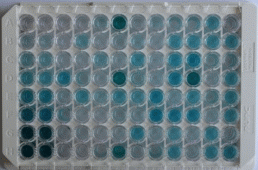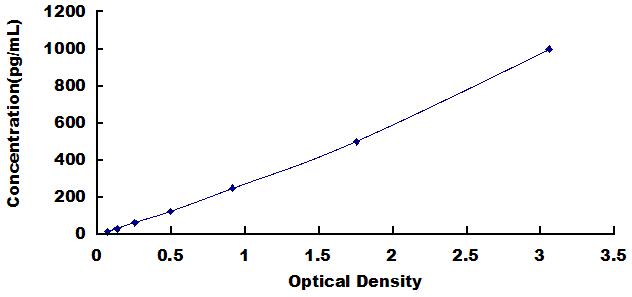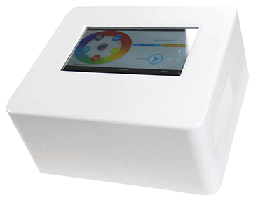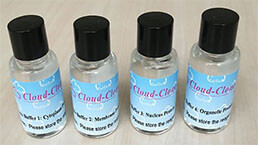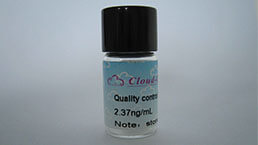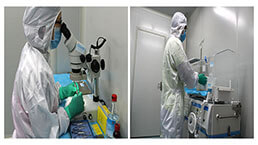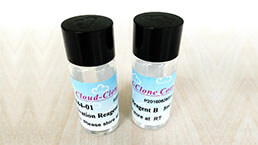Packages (Simulation)

Reagent Preparation

Image (I)
Image (II)
Certificate


Mini Samples ELISA Kit for Macrophage Inflammatory Protein 4 Alpha (MIP4a)
CCL26; SCYA26; IMAC; TSC-1; Eotaxin 3; Thymic stroma chemokine-1; Chemokine(C-C-Motif)ligand 26; Thymic Stroma Chemokine-1; Small Inducible Cytokine Subfamily A 26
- Product No.MEC091Mu
- Organism SpeciesMus musculus (Mouse) Same name, Different species.
- Sample Typeserum, plasma, tissue homogenates, cell lysates, cell culture supernates and other biological fluids
- Test MethodDouble-antibody Sandwich
- Assay Length3h
- Detection Range15.6-1,000pg/mL
- SensitivityThe minimum detectable dose of this kit is typically less than 6.0pg/mL.
- DownloadInstruction Manual
- UOM 48T96T 96T*5 96T*10 96T*100
- FOB
US$ 605
US$ 864
US$ 3888
US$ 7344
US$ 60480
For more details, please contact local distributors!
Specificity
This assay has high sensitivity and excellent specificity for detection of Mini Samples Macrophage Inflammatory Protein 4 Alpha (MIP4a).
No significant cross-reactivity or interference between Mini Samples Macrophage Inflammatory Protein 4 Alpha (MIP4a) and analogues was observed.
Recovery
Matrices listed below were spiked with certain level of recombinant Mini Samples Macrophage Inflammatory Protein 4 Alpha (MIP4a) and the recovery rates were calculated by comparing the measured value to the expected amount of Mini Samples Macrophage Inflammatory Protein 4 Alpha (MIP4a) in samples.
| Matrix | Recovery range (%) | Average(%) |
| serum(n=5) | 82-94 | 87 |
| EDTA plasma(n=5) | 91-103 | 99 |
| heparin plasma(n=5) | 80-103 | 81 |
Precision
Intra-assay Precision (Precision within an assay): 3 samples with low, middle and high level Mini Samples Macrophage Inflammatory Protein 4 Alpha (MIP4a) were tested 20 times on one plate, respectively.
Inter-assay Precision (Precision between assays): 3 samples with low, middle and high level Mini Samples Macrophage Inflammatory Protein 4 Alpha (MIP4a) were tested on 3 different plates, 8 replicates in each plate.
CV(%) = SD/meanX100
Intra-Assay: CV<10%
Inter-Assay: CV<12%
Linearity
The linearity of the kit was assayed by testing samples spiked with appropriate concentration of Mini Samples Macrophage Inflammatory Protein 4 Alpha (MIP4a) and their serial dilutions. The results were demonstrated by the percentage of calculated concentration to the expected.
| Sample | 1:2 | 1:4 | 1:8 | 1:16 |
| serum(n=5) | 96-105% | 95-103% | 93-101% | 84-96% |
| EDTA plasma(n=5) | 88-97% | 78-102% | 92-101% | 78-102% |
| heparin plasma(n=5) | 95-104% | 94-102% | 91-101% | 85-95% |
Stability
The stability of kit is determined by the loss rate of activity. The loss rate of this kit is less than 5% within the expiration date under appropriate storage condition.
To minimize extra influence on the performance, operation procedures and lab conditions, especially room temperature, air humidity, incubator temperature should be strictly controlled. It is also strongly suggested that the whole assay is performed by the same operator from the beginning to the end.
Reagents and materials provided
| Reagents | Quantity | Reagents | Quantity |
| Pre-coated, ready to use 96-well strip plate | 1 | Plate sealer for 96 wells | 4 |
| Standard | 2 | Standard Diluent | 1×20mL |
| Detection Reagent A | 1×60µL | Assay Diluent A | 1×6mL |
| Detection Reagent B | 1×60µL | Assay Diluent B | 1×6mL |
| TMB Substrate | 1×4.5mL | Stop Solution | 1×3mL |
| Wash Buffer (30 × concentrate) | 1×10mL | Instruction manual | 1 |
Assay procedure summary
1. Prepare all reagents, samples and standards;
2. Add 25µL standard or sample to each well. Incubate 1 hour at 37°C;
3. Aspirate and add 25µL prepared Detection Reagent A. Incubate 1 hour at 37°C;
4. Aspirate and wash 3 times;
5. Add 25µL prepared Detection Reagent B. Incubate 30 minutes at 37°C;
6. Aspirate and wash 5 times;
7. Add 25µL Substrate Solution. Incubate 10-20 minutes at 37°C;
8. Add 20µL Stop Solution. Read at 450nm immediately.
GIVEAWAYS
INCREMENT SERVICES
| Magazine | Citations |
| Adv Med Sci | Association of eosinophil-mediated inflammatory biomarkers with the presence of the Schatzki ring 34091432 |
| biomolecules | Searching for Noninvasive Predictors of the Diagnosis and Monitoring of Eosinophilic Esophagitis¡ªThe Importance of Biomarkers of the Inflammatory Reaction?¡ |
| Catalog No. | Related products for research use of Mus musculus (Mouse) Organism species | Applications (RESEARCH USE ONLY!) |
| MEC091Mu | Mini Samples ELISA Kit for Macrophage Inflammatory Protein 4 Alpha (MIP4a) | Enzyme-linked immunosorbent assay for Antigen Detection. |

